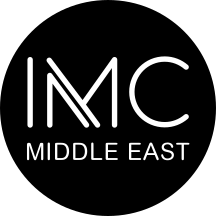Introduction:
In today’s rapidly evolving global marketplace, businesses face increasing scrutiny regarding their ethical practices, integrity, and compliance with international regulations. One critical aspect is bribery—an issue that damages reputations, erodes trust, and significantly impacts an organization’s sustainability. Implementing an Anti-Bribery Management System (ABMS) aligned with ISO 37001 is no longer optional—it’s essential for businesses committed to genuine growth and integrity.
Understanding Bribery Risk:
Bribery continues to be a significant threat globally, with staggering implications. According to the World Bank, bribery and corruption cost the global economy around $1 trillion annually. Businesses can face severe legal consequences, hefty fines, loss of reputation, and diminished stakeholder trust if bribery is uncovered within their operations.
ISO 37001 at a Glance:
ISO 37001 is an international standard specifically developed to help organizations prevent, detect, and address bribery through a structured Anti-Bribery Management System. It provides a practical and robust framework enabling businesses to create a transparent, compliant, and trustworthy environment.
Key components of ISO 37001 include:
- Clear anti-bribery policies and procedures.
- Commitment and leadership from top management.
- Comprehensive risk assessments.
- Training and awareness programs.
- Due diligence in business relationships.
- Efficient reporting and whistleblowing mechanisms.
- Ongoing monitoring and continual improvement.
Why Implementing ISO 37001 Matters:
-
Enhanced Reputation:
Businesses with ISO 37001 certification demonstrate their commitment to ethical practices, strengthening brand trust and credibility. -
Compliance and Risk Reduction:
ISO 37001 helps identify and mitigate bribery risks proactively, significantly reducing legal and financial exposure. -
Competitive Advantage:
Transparency and compliance enhance a company’s attractiveness to investors, partners, and customers who value ethical operations. -
Operational Efficiency:
Clear processes around anti-bribery improve internal transparency, fostering a culture of integrity and accountability within the organization.
Steps Toward Certification:
Achieving ISO 37001 certification involves a few essential stages:
- Gap Analysis: Assess your current anti-bribery practices against ISO 37001 requirements.
- Policy Development: Establish comprehensive anti-bribery policies tailored to your organization’s context and industry.
- Implementation: Deploy training, communication, due diligence, and risk management processes.
- Internal Audit and Review: Regularly audit and refine your processes, ensuring continuous improvement.
- External Certification: Engage an accredited certification body to validate your Anti-Bribery Management System’s effectiveness.
Aligning Values with Action:
At IMC, our core belief is that genuine sustainability and excellence start with integrity. Implementing ISO 37001 isn’t just about compliance—it’s a tangible reflection of an organization’s commitment to ethical leadership, transparency, and sustainable success.
By choosing integrity, you don’t just protect your business; you contribute to a healthier, fairer, and more responsible global economy.
Conclusion:
Adopting ISO 37001 demonstrates your organization’s proactive stance against bribery and your dedication to integrity and accountability. It’s more than just a standard—it’s a powerful tool for building long-term trust, resilience, and business excellence.
Ready to start your journey toward transparency and trust?
Reach out today to discover how IMC can support your business with ISO 37001 implementation and certification.

